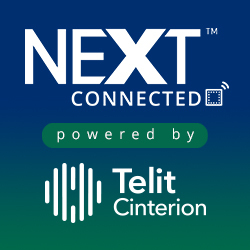Infineon backs Matter smart-home standard
- October 25, 2021
- Steve Rogerson

German electronics company Infineon has announced software support for the Matter smart home standard.
Many smart home products use Infineon’s Airoc wifi, Bluetooth and PSoC 6 MCU products. In this regard, support for Matter in Infineon’s ModusToolbox software and tools is seen as a milestone for the adoption of the emerging standard and is expected to accelerate the deployment of Matter products.
Interoperability has been a barrier to the broad adoption of smart home products. According to Parks Associates, three-quarters of consumers purchasing a smart home device want it to work with the existing devices in their home. Matter – a smart home standard from the Connectivity Standards Alliance (CSA) – promises interoperable, secure connectivity for the future of the smart home.
Several smart home market ecosystem players – including Apple, Amazon, Google and Comcast – joined together in 2019 to develop and promote this standard.
Many of the 320 million smart speakers in homes are likely to be updated over-the-air to support Matter, after the Matter specification has been finalised.
In general, it takes years for a new standard to be impactful; new infrastructure has to be rolled out and customers have to adopt it. The ability for smart speakers and other devices installed in consumer’s homes to be updated over-the-air will accelerate the deployment of Matter gateways to weeks or months, rather than years. This will potentially enable hundreds of millions of homes with these devices.
The rapid deployment should create a large-scale opportunity for companies making Matter products.
Infineon’s software support for Matter helps two sets of companies. First, companies already using Airoc wifi or Bluetooth and PSoC 6 MCUs, in many cases, can leverage the software to add Matter capability to existing products. Next, product companies can take advantage of this market by quickly bringing Matter-compliant products to market using Infineon’s software and portfolio of Airoc wifi and Bluetooth and PSoC 6 MCUs.
Infineon’s combination of software support for Matter, ModusToolbox software and tools, Airoc connectivity chips, and PSoC 6 MCUs, and its involvement in Matter open-source development puts it in a strong position to help companies bring Matter products to market.
The PSoC 6 family is built on a low-power architecture, including low-power design techniques to extend battery life up to a full week for battery powered applications. The dual-core Arm Cortex-M4 and Cortex-M0+ architecture lets developers optimise for power and performance simultaneously. Using its dual cores combined with configurable memory and peripheral protection units, PSoC 6 enables PSA level-two certified MCUs.
Designers can use the MCU’s analogue and digital peripherals to create custom analogue front-ends or digital interfaces for system components such as MEMS sensors and electronic-ink displays. Through software support available in ModusToolbox, PSoC 6 MCUs pair seamlessly with Airoc wifi, Bluetooth or combo radio modules.
The PSoC 6 MCUs use CapSense capacitive-sensing technology, enabling touch and gesture-based interfaces.
• Infineon has collaborated with Picovoice to develop an end-to-end voice platform that brings voice AI to edge devices. This collaboration enables smart voice in low-power IoT devices using the PSoC 6 microcontrollers.

This gives designers an alternative approach to evaluating and deploying wake-phase and intent recognition on the company’s PSoC 6 products. The joint effort opens up possibilities with on-device AI-enabled voice technology for smart home and wearable applications using PSoC 6 MCUs with IoT connectivity support.





